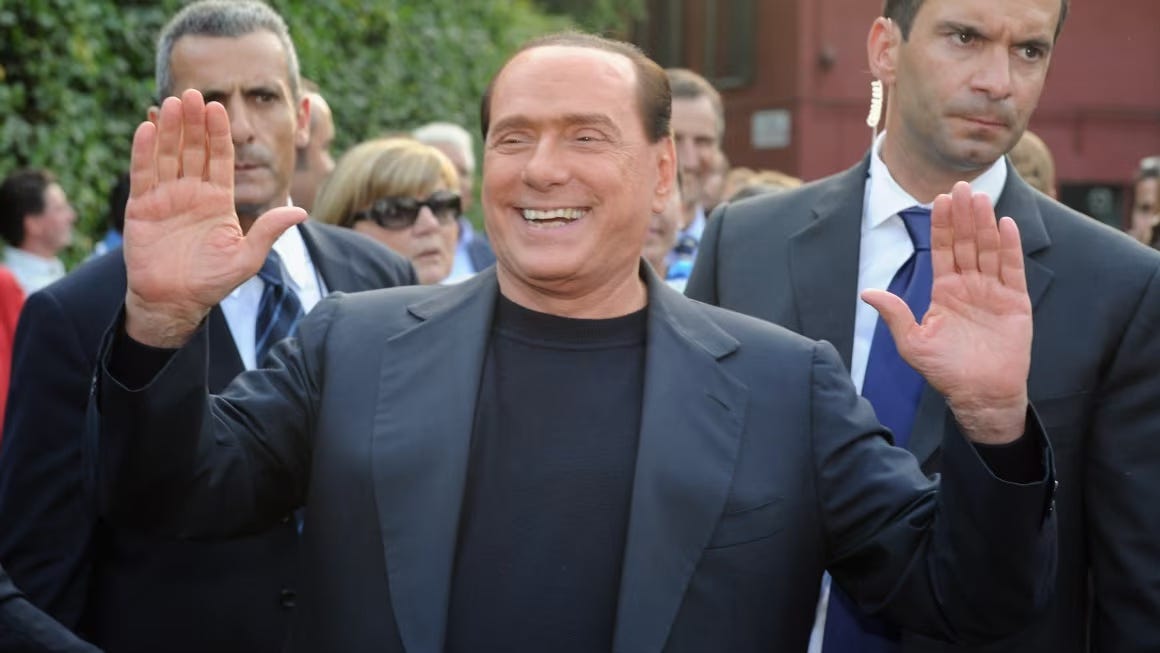Narcissists in Politics: It’s More Dangerous Than You Think
Anyone who has ever worked with a narcissist, and that is most of us, knows what whirl-winding energy suckers they are. While sipping a quiet cup of coffee on a Saturday morning, you may catch yourself thinking about what to say to Madam Narcissistic boss at the Monday meeting. You also contemplate how to edit a coming report and evade the scolding you received last time you gave her some bad news. And that boring business trip you said yes to was just to avoid her for a few days. The narcissist has entered your head and consumes more and more of your energy.
Narcissists in Politics
Politics is the perfect playground for narcissists, offering them millions of heads to enter. That ensures them a supply of what they are dependent on: Attention. Along with that comes the satisfaction of another prominent urge: Power.
In politics, they can also bring to bear all their charm and manipulation tactics. And their talents for blame-shifting and back-stabbing can find their right elements.
Narcissists have no values or convictions. Hence, as politicians, they are only interested in results that make them look good. They don’t care about hospitals, affordable housing or railways. They break agreements and betray people, often without noticing. Responsibility and consequences are words to be used against other people. They don’t read, they don’t reflect, they don’t listen. As a result, they have very poor judgement.
Narcissists love politics but detest democracy, because the latter puts strains on what they can do.
All of this may sound familiar to you, but one thing is often overlooked when it comes to narcissists.
The narcissist is never alone
The self-serving narcissist who ends up running a country is just the tip of an iceberg.
They are the products of a narcissistic culture. A culture they themselves have helped create, spread and reinforce.
It’s like finding an ant in your house. That ant is never alone. And you probably have a huge and costly problem to deal with.
The Orange Man in the White House is the predictable result of an American culture that celebrates narcissism—the race for “success,” the worshipping of fame, the I-am-stupid-and-proud-of-it mentality, the ruthless competition—in short, the me-me-me culture where Jesus and machine guns are a fine combination.
And voila! Out of that hat springs the Orange Man—the leading actor in his reality show called POTUS.
But Trump is far from the only narcissist ending up in positions of power. It’s quite common. Leaders are more likely to be narcissistic than the rest of the population.
But how exactly does that happen?
The short answer: He or she had cohort after cohort of enchanting enablers.
Who are these enablers?
I have written about “stupid voters,” so let’s forget about the voters for now and look at enablers within an organisation, be it a company or a political party.
Such enablers come in many flavours, but we can usually distinguish two main groups.
THE EXCUSERS
Firstly, you have the ardent excusers. They are well-meaning and gullible, but also eager to get results. In politics, that means winning elections. To begin with, the excuses may sound like “She isn’t that bad, look how people flock around her.”
Before long, the charming facade of the narcissist begins to crack. The bullying starts to show itself. So do the terrifying outbursts, the need to have everything their way, the refusal to admit mistakes. Then the excuses shift to “But she attracts voters.” “She is so capable.”
And the longer you hang on to that excusing carousel, the more difficult it is to jump off. So, you make another excuse and another one. Rumours about the narcissist’s sexual assaults are “Nothing but rumours.” Illicit means of funds “Can’t be verified.” Lies become “We all make mistakes.” Making fun of a junior staff member who started to cry is “A bad joke.” Temper tantrums are “Being passionate.”
THE NARCISSISTIC ENABLERS
The other prominent group of enablers are those with narcissistic traits themselves. They are not fully fledged narcissists, but they have self-centred, attention-seeking and thin-skinned tendencies whose moral compasses can swirl in any direction. The true adults in the organisation have held these people in check, but now (finally!) this new guy allows them to be themselves.
Now they understand how underappreciated they have been. How stupid and incompetent the others are. How easy it is to get promoted if you behave in the right way and say the right things. Just do as the real narcissist do.
They are part of the booming band!
Since these enablers are not complete narcissists, they feel guilty for letting down people they have worked with for years, but brush that aside. Being nice is so yesterday.
And to clarify: Narcissism is not a left versus right thing. Narcissism can come in any political colour. If anti-materialism and environmental activism are what give the narcissists power and attention, they go for that. They go for anything.
The adults
But what about these true adults I have mentioned?
The true adults have had their doubts about this narcissist from the very beginning, but since they often constitute the minority in any organisation, the majority ignore their objections. “Come on! Look at him. Have you ever seen such talent?!”
And with the narcissist’s booming popularity, he or she draws their circle of enablers closer, shutting the adults out. It may begin with hints about the adult’s inabilities. That leads to rancid remarks. Followed by ostracism and open bullying. Soon, the adults leave, are being pushed out, or stand alone in a corner, tipping their toes with a mug of lukewarm coffee in their hand.
The true adults may have started their careers because they wanted to create something better. They liked to help people. They made great friends. Now, all that is gone out of the window.
When those adults disappear, the narcissistic party can start.
The narcissistic culture
The party doesn’t last long.
When the narcissists have gathered their cosy circle of yes-saying sycophants, love-bombed senior managers, and made sure they get those promotions they are entitled to, the enablers wake up to the strict rules they must follow.
Rule number 1: Don’t criticise the narcissist. Not even inadvertently by mentioning how much you dislike the colour purple—the narcissist’s favourite. ”So, purple isn’t good enough for you?!”
Rule number 2: Don’t ask inconvenient questions. Not even a “Why are we doing this?”
Rule number 3: Always praise. Never, ever forget that. No matter what you say. “As Mark suggested, originally an excellent idea of yours, sir/madam…”
Break any of these rules, and you will find yourself in the out-group before you know it.
Some of the ardent excusers may start to get cold feet when reality creeps in, but where can they go? The narcissistic enablers, on the other hand, still believe they are on the winning team. The king or queen of the mountain throws other people under the bus at a whim, but what happens to others will not happen to them. They are too smart.
Before anyone realises what is happening, a transformation has taken place.
Trust is out, fear is in. Next year is out, now is in. Doing the right thing is out, cheating is in. Hearty laughter is out, hurtful jokes are in. Thought-through arguments are out, catch-phrases are in.
A narcissistic culture has been established.
Over time, that culture becomes more and more entrenched.
This is how Ramani Durvasula describes it in her excellent book “Don’t You Know Who I Am?”
Narcissistic and toxic leaders are also masterful at squeezing out dissenting voices.
And she continues … they are able to attract subservient lackeys who keep pumping them up. In this way, toxic leaders end up with toxic colleagues and toxic or brainwashed employees, with everyone joining the delusional chorus of voices to support the regime of the narcissistic leader.
The problem with narcissists is not about a toxic individual coming in and moving out. Enablers let the narcissists in, and once inside, they create a narcissistic culture or strengthen the narcissism that is already there. Unless we see a profound change in the American culture, we can only brace ourselves for the next Trump.
A narcissistic culture––within his party and beyond––is also why a much less dangerous, but narcissistic Boris Johnson could become prime minister in the UK. And the reason why a populist womaniser like Berlusconi could become prime minister in Italy. Or a corrupt Sarkozy, the president of France.
But is it possible to turn this around?
I say yes. As with corruption, it takes many years of hard work, even generations, but it is possible. In Sweden, it took 70 years to root out the corruption in the army after the Napoleonic wars in the 19th century.
A first step in rooting out a narcissistic culture is to prevent new narcissists from getting through the door. That forces the organisation to hire more mature people.
As I have suggested before, anyone entering politics should undergo testing for mental competence.
Likewise, they should be screened for narcissistic and psychopathic traits. It’s not too much to ask that we ensure our leaders are not self-absorbed, entitled, contemptuous of democracy, fundamentally untrustworthy and cannibalistic—eating anyone for breakfast, and spitting out the leftovers.
The Narcissistic Personality Inventory (NPI) is a widely recognised and reliable tool, often used in hiring processes. But one test is not enough. That is why politicians should be evaluated for narcissism and psychopathy every time they take up a new position—ideally by one or more psychologists. And the higher the office, the more rigorous the evaluation should be.
In such a system, the Orange Man wouldn’t have stood a chance.
There is, by the way, a strong link between narcissism and psychopathy. As Dr Ramani Durvasula notes, psychopathy can be seen as a more extreme form of narcissism. All psychopaths are narcissists to some extent, though not all narcissists are psychopaths.
Will there be anyone left?
But if we are able to weed the narcissists and the psychopaths out of politics, will there be anyone left? Aren’t all politicians self-serving and narcissistic?
I don’t think they are, but too many are.
The problem is that good politicians have to compete with heaps of “charismatic” narcissists who convince voters they are their guy.
There might be a dip in the recruitment if we weed these idiots out, but down the road, we will see more mature people entering politics. The ones who are not hungry power-grabbers but who have a wholehearted wish to make things better. The ones who need some persuasion to enter politics.
Or as Abraham Maslow put it, “The safest person to give power to is the one who doesn’t enjoy power.”
That is a person who understands that the job is about service, about daring to make unpopular decisions, about cooperating with people you don’t like, about taking responsibility for things you could not possibly avoid, about admitting mistakes and correcting the course.
Such persons know they are entitled to nothing.
Links
Narcissistic Personality Inventory
Pathological power: The danger of governments led by narcissists and psychopaths
A book about narcissism: “Don’t You Know Who I Am?” by Ramani S. Durvasula.
Thanks for reading! Please subscribe, and learn more about why immaturity is the world’s core problem.





